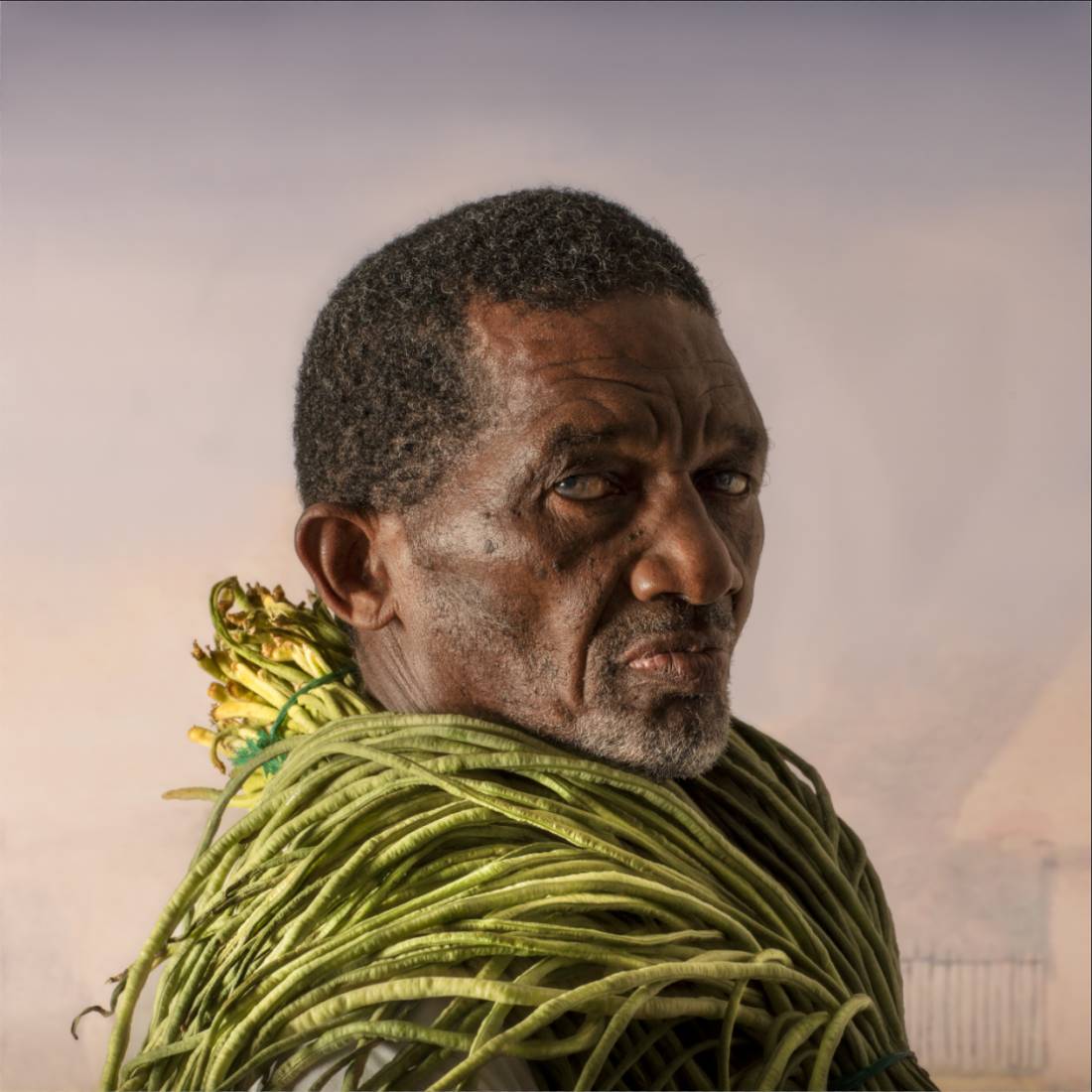Type:
Country:
Venue:
Categories:

“As an artist, my work always involves people, with them and for them, I propose new readings on common situations that we are all used to seeing.” Ruby Rumié’s fourth solo exhibition at the Nohra Haime Gallery, “Nosotros 172 años después,” consists of a series of 100 photographs referencing the Colombian Caribbean: its people, their diversity and its food. The exhibition will be on display from May 11 to July 16, 2023.
“Colombia is considered a country of many regions each with its own identity and characteristics. The Colombian Caribbean is no stranger to this. I started this project from the perspective of a Colombian woman, with a desire to question, as we are now living through a very tangible social fragmentation of our identity. During this questioning process of our history. I found and researched the collection of images of The Chorographic Commission and a series of academic texts from the 19th century. This allowed me to transfer this inquisitiveness to the nearest context that I am also familiar with, which is the Caribbean.” From this encounter and confrontation with these documents, “Nosotros 172 años después,” Rumié invites us to reflect through these photographic portraitures on the lack of visual representations of the historical discourses that have defined the identity of the Colombian Caribbean from the New Granada to the present.
“I chose food as a vehicle to create new narratives that celebrate the cultural diversity of this territory.” The project puts together one hundred people from the Caribbean region whose unique characteristics share the passion and commitment for their trade, and express in a special way their taste and the value they place on the food from this region, as food is one of the most relevant cultural elements.
“Each person was interviewed and photographed with their favorite food over one of the landscapes from the chorographic prints. For this, I made an intervention on these portraits by erasing the original persons portrayed in the 19th Century prints. Then I completely digitally reconstructed the original landscapes and placed my portraits with these 19th century landscapes on the background. I did this with the purpose of displacing the viewers’ gaze, and fostering new ways of narrating ourselves.”
Born in Cartagena de Indias, Rumié studied painting, drawing and sculpture at the Cartagena School of Fine Arts (1980-1982). From 1989 to 1996 she worked on hyperrealist painting. She then broke away from academia and pursued her work with a clear focus on social issues, both territorial and on patrimony, questioning her commitment as an artist to society. She has held important exhibitions in Colombia, Chile, the United States and France. She exhibited Hálito Divino (Divine Breath) and Tejiendo calles (Weaving Streets) at the Nohra Haime Gallery in New York and at NH Galería in Cartagena, Colombia. She participated in Art Paris and in the first Biennial of Contemporary Art of Cartagena de Indias with her work Lugar común (Common Place). She was awarded the Rockefeller Foundation Bellagio Center fellowship and Women Together from the United Nations (UN) for her anthropological, social and artistic Works.
For more information, please contact: Sabrina Borrero Baez at 212 888 3550 or gallery@nohrahaimegallery.com
Artist:
Ruby Rumié’s work includes painting, sculpture, photography, video and installation. She develops projects based on injustice and psychology, and the impact of modern life in the daily lives of common people. Rumié focuses her research on the locals of Getsemaní, a historical neighborhood of Cartagena de Indias, where she lives. Getsemaní is where she finds her conceptual material, analyzing the impact of gentrification and progress, and suggesting a new role for the artist: that in which there is not only an aesthetic and poetic revelation, but also a search of how to manage social and psychological problems through creation.
Rumié began using the technique of hyperrealism painting to present portraits of the inhabitants of Cartagena. She later incorporated social and territorial heritage, questioning the compromise of the artist with society.
She implements various tools in her projects such as cartography, census and archival techniques, half way between the final and aesthetic creation, as well as community work and sociological research. Following this path, she recently created the project Hálito Divino (Divine Breath), in which she focused on giving a social and creative voice to women who suffered from domestic violence.
Ruby Rumié was born in Cartagena de Indias, Colombia in 1958. She lives and works between Cartagena and Santiago, Chile. She studied painting, drawing and sculpture at the School of Fine Arts of Cartagena de Indias, the David Manzur Academy in Bogotá and has participated in several workshops with artists such as Maria Teresa Hincapié, Eugenio Dittborn, Fabián Rendón and Jean Pierre Accoult. She has held exhibitions in Bogotá, Barranquilla, and Cartagena, Colombia; Santiago, Valparíso and Temuco, Chile; Miami, New York, and Washington D.C., USA; Rouen and Paris, France. She recently participated in the international section of the First International Biennial of Contemporary Art of Cartagena de Indias, Colombia.
500A WEST 21st STREET, NEW YORK, NY 10011
- 905 reads

